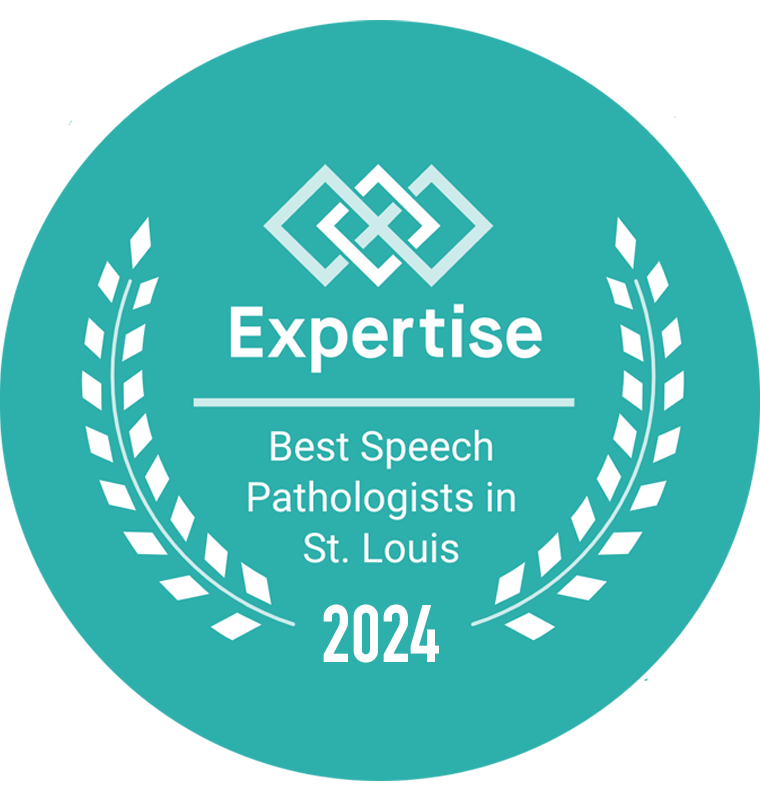Services
ABC Pediatric Therapy is a private clinic that provides comprehensive services for speech and language therapy, physical therapy, augmentative communication, and feeding therapy to children birth to young adulthood. Our services include conducting diagnostic evaluations, creating and implementing treatment plans, completing augmentative communication evaluations and recommendations, and offering consultation services. In addition, ABC has Early Intervention Credentialed therapist who provide services through this state funded program to children age 0 to 3 years old.
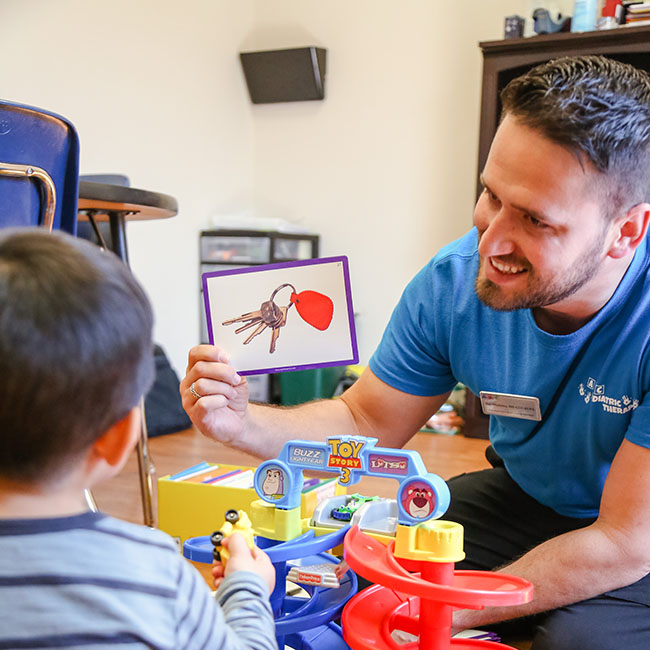
Speech Therapy
When your child has the flu or a cold, you take them to see a doctor. If a child has communication difficulties such as not talking clearly or not understanding directions, you would take them to see a speech language pathologist also known as a speech therapist.
Speech therapists are specialists who help people of all ages to develop communication skills. They are trained in the diagnosis and treatment of a variety of speech, language, voice, and swallowing disorders. These disorders may result from a hearing loss, mental disabilities, physical disabilities, or most commonly from unknown causes. Speech therapists develop individualized treatment plans based on findings from their evaluations as well as from collaboration of other medical and educational professionals.
In addition to treating these disorders, speech therapists counsel and support individuals and their families. They do this by educating them on the speech/language disorder and on how to cope with the stress associated with these problems. They also help families on carry over of treatment techniques to use at home and on how to modify behavior that impedes communication.
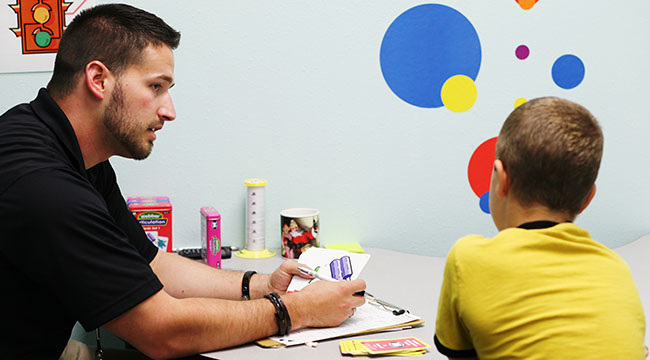
To learn more about "What are speech and language disorders" refer to the website below.
www.asha.org/students/professions/overview/sld.htm
Speech and Language Therapy may consist of:
Depending on the specific speech and language disorder of a child, a speech therapist will utilize many different methods or a combination of them.
- Speech Sound Therapy
- Play Based Therapy
- Picture Exchange Systems
- Sign Language
- Speech Generating Devices
- Kaufmann Approach
- Cycles Approach
- Social Groups
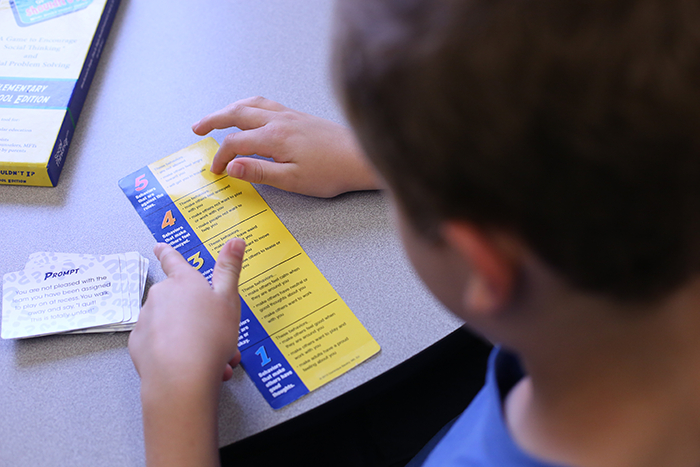
Physical Therapy
A physical therapist utilizes various treatment interventions to increase strength, tone, range of motion, and decrease pain so kids can return to their daily activities in the community, home, school, and sports. A physical therapist or physical therapist assistant may work with a child who has a specific health impairment/disease, poor coordination, decreased muscle strength, muscle tone, or flexibility, delayed achievement of motor milestones (crawling, walking, jumping), functional mobility skills (ambulation, stair climbing, wheelchair mobility, transfers) or following an injury. Overall, they help children reach their full potential in the performance of gross motor and functional mobility skills.
Our physical therapists have wide range of experience with:
Delayed Milestones, Spinal Muscular, Atrophy, Orthopedic Conditions, Chromosomal and Genetic Abnormalities, Scoliosis, Torticollis, Developmental Delays, Toe walking, Autism Spectrum Disorder, Spina Bifida, Cerebral Palsy, Neurodevelopmental Treatment, Functional Mobility, Muscle tone and strength, range of motion, quality of movement.
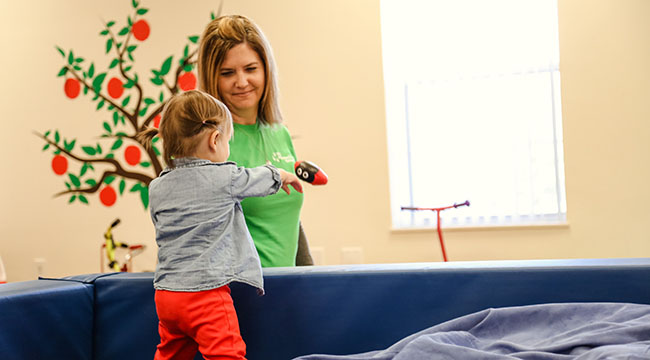
Physical Therapy may consist of:
- Gait training (Therapist may utilize a LiteGait® which allows the child to be safely supported while the child is learning to walk and allows the therapist to assist with the legs and pelvis to accomplish proper gait patterns.)
- Balance and coordination training
- Kinesiotape and therapeutic taping
- Therapeutic exercise
- Manual therapy
- Development and monitoring of personalized home exercise program
- Orthotic and adaptive equipment
- Alignment and postural training
Augmentative Communication Evaluations
AAC stands for "Augmentative and Alternative Communication." AAC is any alternative communication from low technology such as sign language or a picture system to high technology such as a speech generating device.
There is a population of children who use alternative methods of communication because they have decrease or no use of verbal communication. They cannot depend on their "voice" to correspond their wants, needs, and ideas to the world. Many children who require the use of AAC are unable to use compensatory strategies such as gestures and pointing due to either cognitive, social skills challenges and/or physical disabilities. AAC is essential for any child who is unable to meet their communication needs using natural speech.
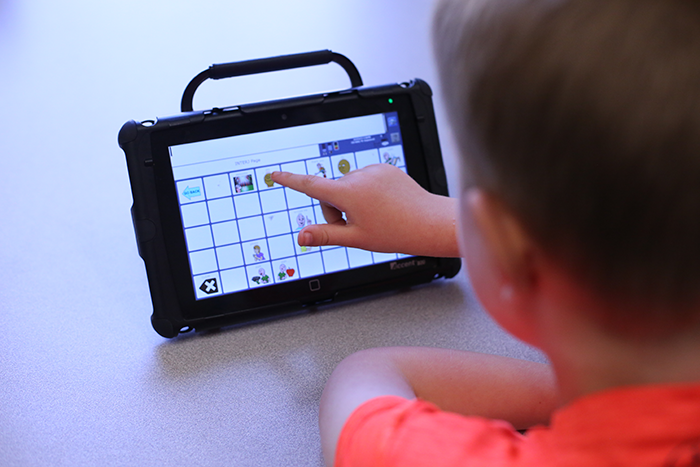
Our speech therapists have wide range of experience with:
- Articulation/Phonological Disorders
- Language Disorders
- Childhood Apraxia of Speech
- Augmentative/Alternative Communication (AAC)
- AAC Evaluations, Consultation, & Training
- NLA/GLP Trained Therapists
- Neurodiversity Affirming & Strengths-Based Therapy Approaches
- Phonological Processing & Phonemic Awareness
- Pediatric Feeding
- Fluency Disorders
- Voice Disorders
- Vocal Cord Dysfunction
- Executive Dysfunction & ADHD strategies
- Experienced with rare disorders, syndromes & conditions
- Extensive experience with Autism Spectrum Disorders
- Experienced with Syndromes, Chromosomal /Genetic Abnormalities
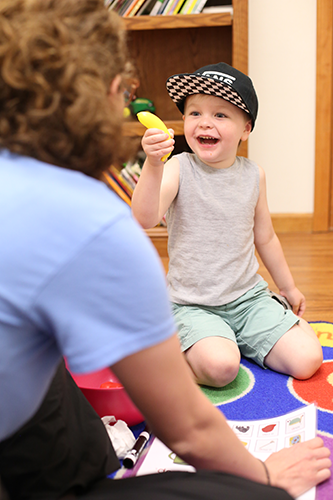
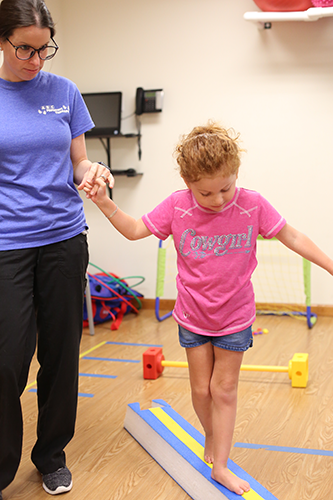
Our physical therapists have wide range of experience with:
- Developmental Delays
- Hypotonia/Hypertonia
- Neurological Conditions
- Orthopedic Injury Rehabilitation
- Postural Training
- Strengthening for Function
- Torticollis/Plagiocephaly
- Adaptive Equipment and Orthotic Assistance
- Balance and Coordination Training
- Toe Walking
- Gait Training
- Chromosomal and Genetic Abnormalities
- Scoliosis
- Musculoskeletal Pain Conditions
